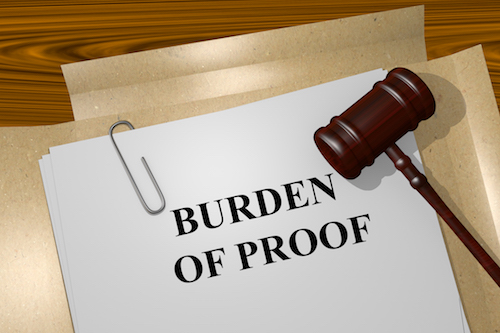 In re ZTE (USA) Inc., No. 2018-113, 2018 (Fed. Cir. May 14, 2018) (Before Reyna, Linn, and Hughes, J.) (Opinion for the court, Linn, J.)
In re ZTE (USA) Inc., No. 2018-113, 2018 (Fed. Cir. May 14, 2018) (Before Reyna, Linn, and Hughes, J.) (Opinion for the court, Linn, J.)
Defendant ZTE petitioned for a writ of mandamus, forcing the Federal Circuit to consider which party carries the burden of proof in a motion to transfer. The Federal Circuit held that its law governs the burden of persuasion on the propriety of venue under § 1400(b) and the Plaintiff bears this burden.
After the case was filed in the Eastern District of Texas, ZTE filed a motion to transfer the case to the Northern District of Texas under 28 U.S.C. § 1404(a) and filed a motion to dismiss for improper venue under 28 U.S.C. § 1406 and § 1400(b). The district court ruled that the Eastern District of Texas was a proper venue. Relying on Fifth Circuit law, the district court denied ZTE’s motion to dismiss, finding that ZTE “failed to meet its burden to show that it does not have a regular and established place of business in the District.” ZTE filed a petition for a writ of mandamus alleging that the district court improperly placed the burden of proof on the defendant.
The Federal Circuit granted the writ and considered (1) whether Federal Circuit or regional circuit law governs the burden of proof for determining the propriety of venue under § 1400(b) and (2) on which party that burden rests. The Court acknowledged that the Federal Circuit generally defers to regional circuits on procedural law questions “not unique to patent law.” In this case, however, venue in a patent infringement action necessarily involves § 1400(b). Accordingly, this is an issue unique to patent law. The Court relied on the patent specific nature of the statute, the fact that the regional circuits had answered the question inconsistently, and that all appeals would end up at the Federal Circuit. It was appropriate for the Federal Circuit to adopt a uniform national rule to address patent-specific venue.
The Federal Circuit had not previously considered this issue. The Court concluded that the Plaintiff should bear the burden of establishing venue under § 1400(b). Prior to formation of the Federal Circuit, regional circuits uniformly placed the burden to show proper venue in a patent case on plaintiffs. In addition to this persuasive historical information, the intent of drafting § 1400(b) and other patent-specific venue statutes was to restrict the venues available to bring patent actions. The Court concluded that the “intentional narrowness supports placing the burden of establishing proper venue on the Plaintiff.”
The Court criticized the lower court’s summary characterization of the relationship between the parties and instructed the district court to, on remand, consider a list of factors relevant to whether or not the “place of business” at issue in this case is “of the defendant.”
Take Away
Plaintiffs bear the burden of proving, under Federal Circuit law, whether venue is proper in a patent infringement suit.
[Troutman-Ad]
[Troutman-About]

![[IPWatchdog Logo]](https://ipwatchdog.com/wp-content/themes/IPWatchdog%20-%202023/assets/images/temp/logo-small@2x.png)


![[Advertisement]](https://ipwatchdog.com/wp-content/uploads/2024/04/Artificial-Intelligence-2024-REPLAY-sidebar-700x500-corrected.jpg)
![[Advertisement]](https://ipwatchdog.com/wp-content/uploads/2024/04/UnitedLex-May-2-2024-sidebar-700x500-1.jpg)
![[Advertisement]](https://ipwatchdog.com/wp-content/uploads/2024/04/Patent-Litigation-Masters-2024-sidebar-700x500-1.jpg)

![[Advertisement]](https://ipwatchdog.com/wp-content/uploads/2021/12/WEBINAR-336-x-280-px.png)
![[Advertisement]](https://ipwatchdog.com/wp-content/uploads/2021/12/2021-Patent-Practice-on-Demand-recorded-Feb-2021-336-x-280.jpg)
![[Advertisement]](https://ipwatchdog.com/wp-content/uploads/2021/12/Ad-4-The-Invent-Patent-System™.png)






Join the Discussion
No comments yet.